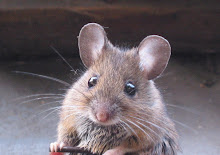The three friends are Marina, the beautiful and indulged daughter of Murray Thwaite, journalist and honored author, struggling to finish her own first book and prove herself as her father’s daughter; Julius, a broke freelance film and book critic, gay, cynical, clever and yearning for both the finer things in life and a relationship that lasts more than a few passionate moments; and Danielle, who is lovely and bright, a public television producer in search of the perfect show, but who must fight to keep out of Marina’s dazzling shadow.
Only Marina is a native New Yorker (an entitled former socialite who has had to move back in with her parents, to her chagrin); but Danielle and Julius have made NYC their adopted home. Their three lives entwine and intertwine, and then being to pull apart as new relationships insinuate themselves. Marina meets the man she believes she’ll marry – he’s arrogant, ambitious and no one else likes him – Julius is completely absorbed by life with his new lover and Danielle begins a secret affair with a married man.
Things are thrown into further disarray when Marina’s cousin, the fat and awkward Frederick, comes to NYC to join the ranks of the intelligentsia. Initially mentored by his uncle Murray, Frederick decides to expose him as a pretentious fraud, the repercussions of which shake the lives of the people around him.
Messud is a fantastic writer, almost Austen-esque in her observations of the preening, posturing New York literary society. Even if the daily details of her characters’ lives may be unfamiliar, the ache of unfulfilled promise, of hopes and dreams not quite attained, is easily identifiable, and yet presented drolly, with good humor. I wanted to include a throwaway passage here, an observation that is so keen and true and funny that it made me laugh out loud, remembering when I’d done something similar with my friends; The Emperor’s Children is full of other similar, priceless observations:
…[t]he three women were playing the dessert game – each trying to hide her sentiments about the course while simultaneously attempting to gauge those of her companions; a routine in which the younger two rightly surmised that[the older woman] was more hopeful for a sweet than they were anxious to avoid one, so that they ordered, eventually, a single chocolate pot de crème and three spoons …The book takes a darker tone in the last third as 9/11 blasts its way through the city. I understand the author’s desire to include it, addressing the global and personal changes it wreaked upon her characters, but at the same time I mourned the loss of joy from the novel’s language, mirroring of course the loss of joy from its denizens.






I enjoyed this novel somewhat. I felt that it could have a little more substance. I found the fat, awkward Fredrick to be the most interesting character. It was like like he wanted to go to Harvard, and was destined for it, but he didn't need the education to proclaim himself in the world. How many times do we feel like that as individuals completing the degree but acknowledging that the degree didn't make us who we are.
ReplyDelete